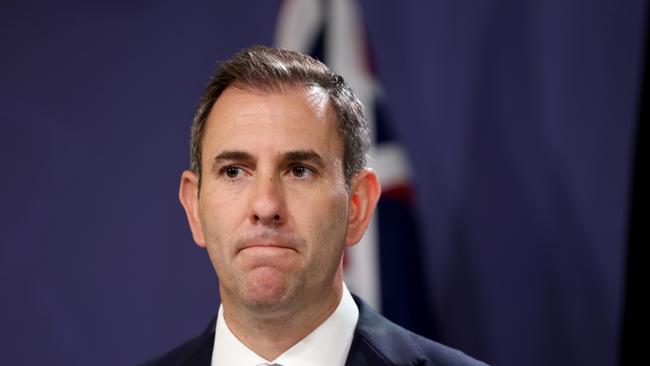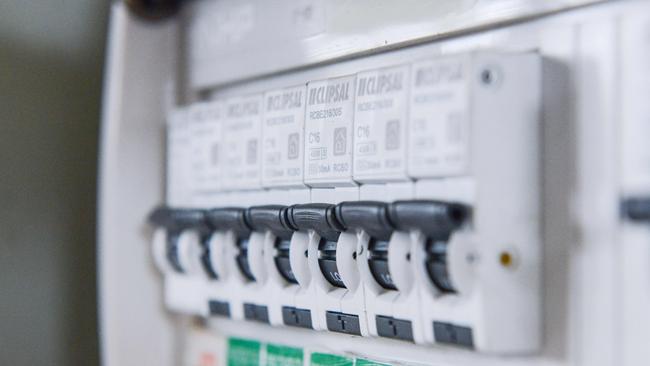Treasurer Jim Chalmers defends price cap amid energy retailers’ blame game
Power bills could surge further than expected, gas companies and the opposition warn, as Labor defends its controversial cap.
As the opposition and retailers call for the government’s controversial gas price cap to be scrapped, Treasurer Jim Chalmers says he appreciates the challenges energy companies are facing.
Major energy retailers across the country have been forced to stop taking on new gas customers while others ramp up their prices, as they struggle under the government-imposed 12-month price cap.
Companies are facing uphill battles in securing ongoing supply from producers, with some of the east coast’s biggest gas producers upholding their suspension on new supply offerings.
In December, the government capped new contracts for east-coast wholesale gas at $12 a gigajoule for 12 months, which aimed to limit surging power prices.
At the time, the opposition were fervently against the unprecedented market intervention – and on Monday called for the measure to be scrapped.

Retailers are struggling to secure gas from producers under that cap, meaning consumers are already paying more or could soon pay more than they were.
AGL – the country’s second largest energy retailer – has been unable to secure contract supply of gas for the year. As a result, the retailer is not taking on new commercial and industrial customers, subsequently forcing those whose contracts are expiring onto expensive default tariffs.
An AGL spokeswoman said the retailer understood the “importance of securing long term affordable gas supplies for its commercial and industrial customers”.
“AGL’s commercial and industrial customers not contracted for the period from January 1, 2023 have been placed onto default tariffs,” she said.
It’s understood other retailers have been forced to ramp up costs for retail customers, with smaller companies pulling out of the residential market.
Dr Chalmers said the ACCC was “closely monitoring” gas producers’ behaviour.
“We expect the gas producers to act promptly to implement the temporary price cap, and the ACCC is closely monitoring the behaviour of gas producers to make sure that they’re consistent with their obligations under that temporary price cap,” he said.
“And under the heads of agreement, those gas companies have committed to offering an extra 157 petajoules of supply to the east coast market in 2023 … and the gas price cap is expected to put downward pressure on the forecast price increases as these changes flow through to retail supplier contracts.”

NSW Energy Minister Matt Kean said the ongoing war in Ukraine was driving up the cost of coal and gas, which was trickling through to wholesale electricity prices.
“We are expecting a 50 per cent increase in electricity bills next year because of the war in Ukraine,” he told the Nine Network.
“We’ve worked with the Albanese government and have put in place price caps which will put downward pressure on electricity prices.
“We’ve worked hand-in-glove with the commonwealth government, and consumers can expect that electricity prices will be a lot lower than they otherwise would have been had it not been for the NSW government’s intervention.”
Labor’s policy, which was agreed to when parliament was recalled for a day in December, placed no cap on retail prices, no requirement for gas producers to reserve quantities of gas for the domestic market and no limit to the prices retailers can attract on the international market.
Liberal MP Dan Tehan said the government’s energy policy had been exposed as a “failure”.
“They’ve got to immediately reverse it,” he told Sky News.
“They have got to get more supply into the market.”
Independent senator Jacqui Lambie said the latest developments were a clear sign Labor’s policy wasn’t working.
She said it was time to have a conversation about building a domestic gas supply, similar to that in use in Western Australia.
“We need to have another look at that. I don’t believe the caps are going to work,” she told Sky news.
“Go back to the drawing board PM, you got it wrong.
“People can’t afford for those power prices to go up anymore, something has got to give.”


